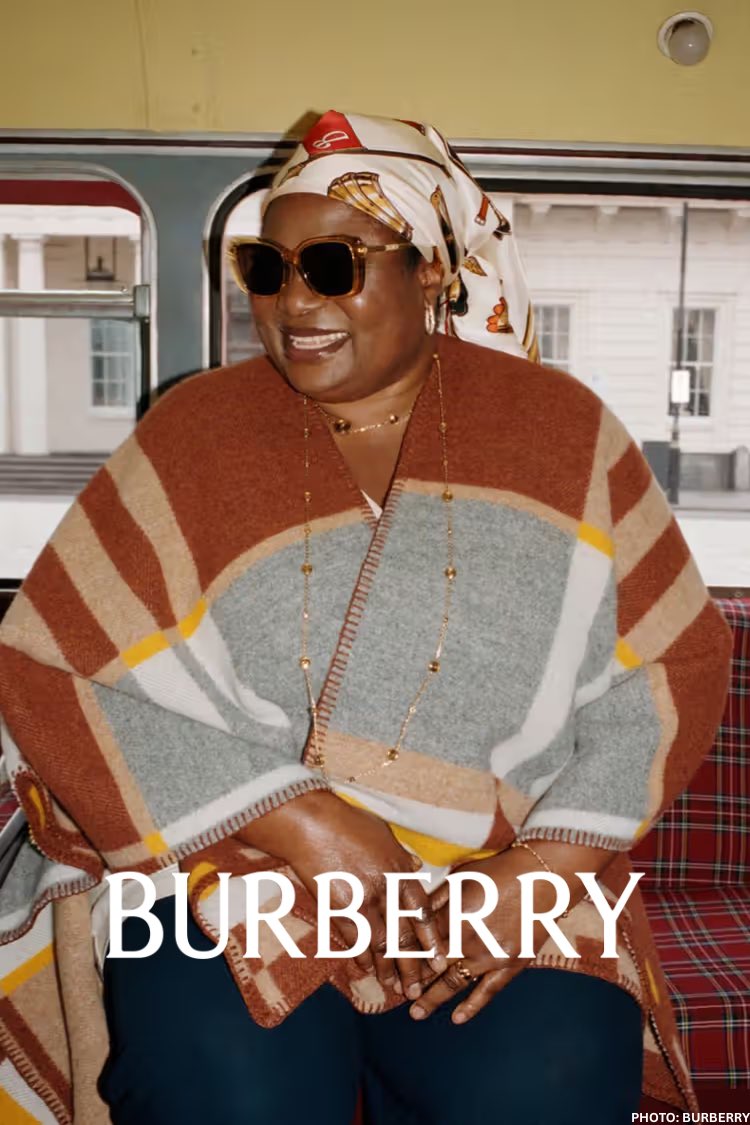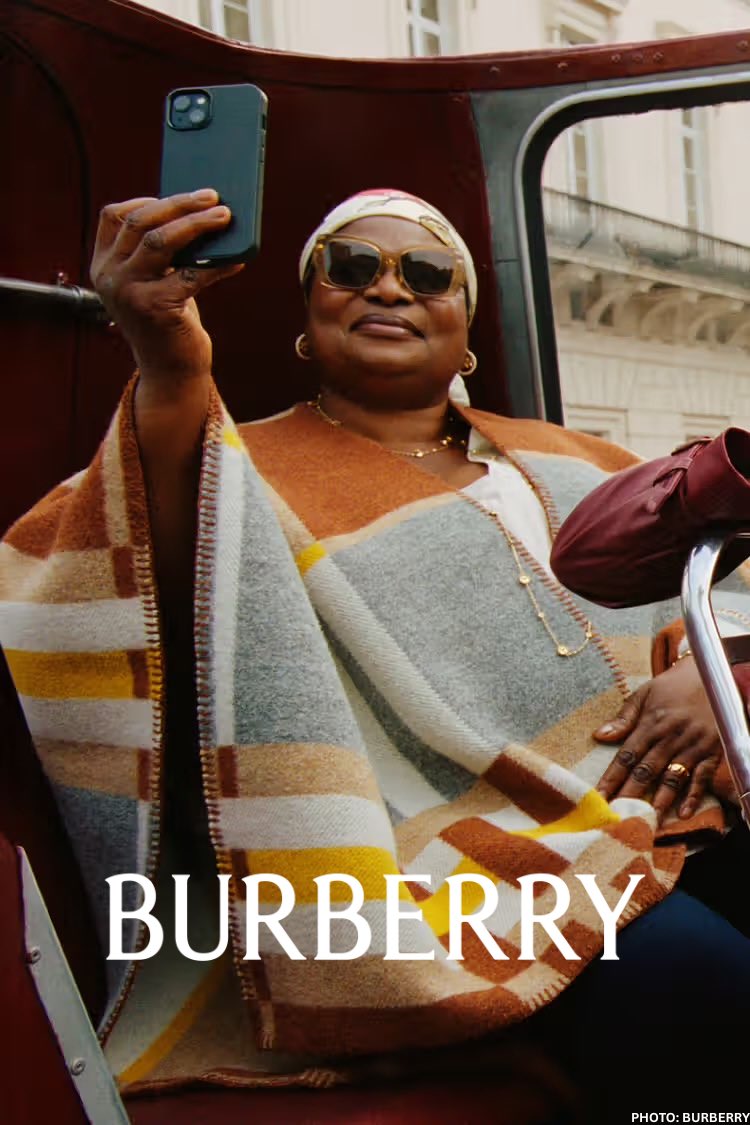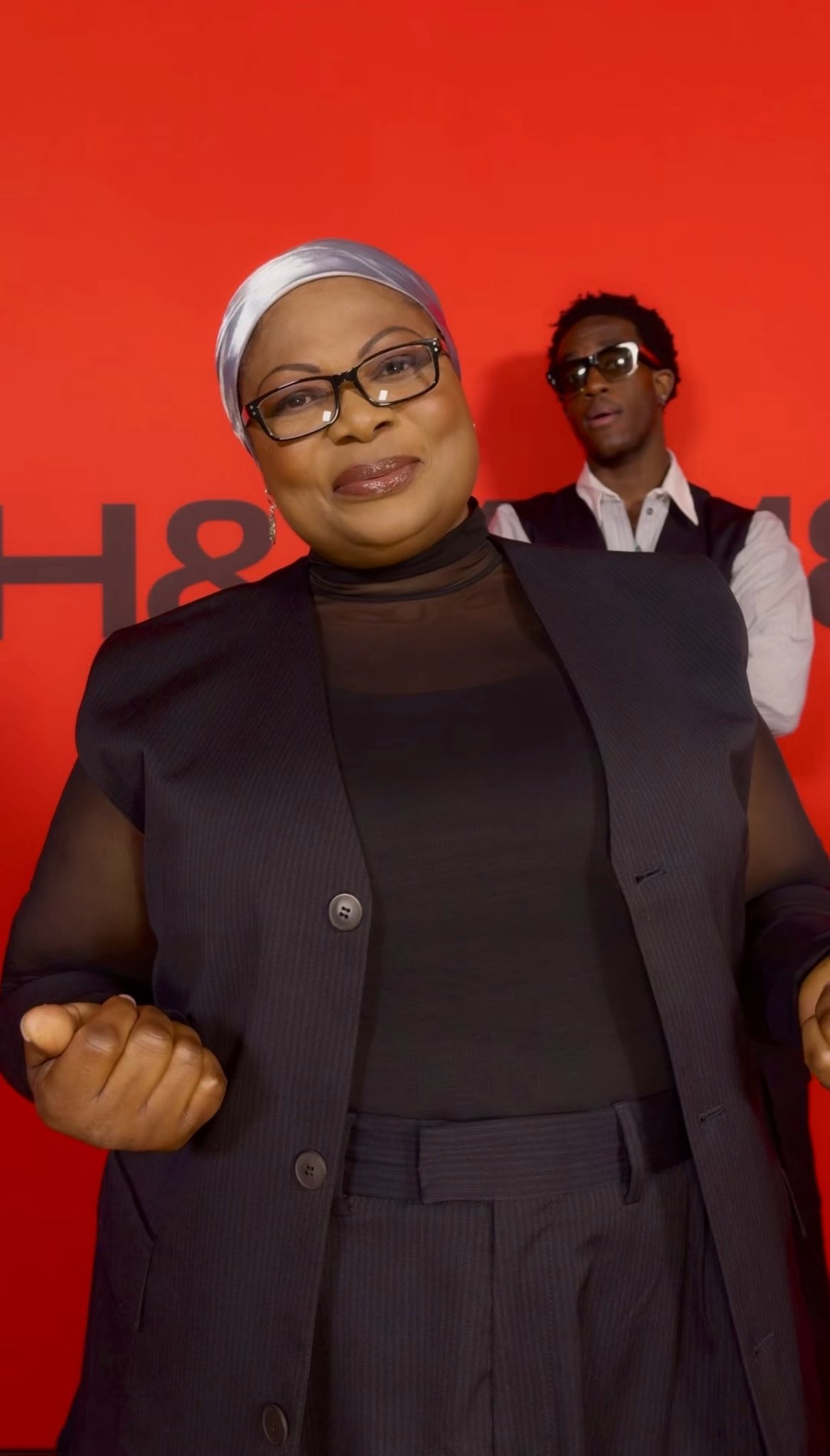
On a bustling street in London, where red double-decker buses roar past commuters, a woman in her mid-50s began posing for a camera. No flashy choreography, no elaborate production. Just her, a smile, and the iconic buses rolling by. Within months, those clips transformed Bemi Orojuogun, affectionately dubbed the “Bus Aunty,” into one of the internet’s most surprising cultural figures and now, a rising name in global fashion.
Aunty Bemi, 56, has lived in the United Kingdom for more than three decades, working as a mental health nurse. But it is her bus-side videos, shared to hundreds of thousands on TikTok and Instagram, that have made her a household name across communities in London, Nigeria and beyond. What began as a lighthearted personal project has evolved into a career that few could have predicted.

In the past year alone, Bemi has collaborated with global brands including Maybelline, Burberry, H&M, Jacquemus, Ikea and JBL. She also partnered with model and fashion creator Wisdom Kaye, attended her first fashion week show and appeared on the cover of a Burberry campaign. Her presence, once confined to the sidewalks of London, is now stamped across billboards, fashion magazines and luxury advertisements as she is even recognized by the Mayor of London and other people of high standard.
Her rise matters not only for its novelty but also for what it represents. For African audiences especially, Bemi evokes nostalgia and recognition. She has been embraced as a reflection of mothers, aunties and everyday women whose lives often go unseen in mainstream fashion narratives.
“People see themselves in her,” said cultural commentator Adaeze Eze, who studies internet virality in African diaspora communities. “There’s a familiarity; the warmth, the humour, the groundedness. That’s why she resonates so deeply.”
Orojuogun’s story also highlights a broader cultural shift: the growing acknowledgement of Black creators for acts that might once have been dismissed as ordinary. Her videos, standing near a bus, flashing a smile, adjusting her outfit, are deceptively simple. Yet that simplicity has sparked discussions about joy, visibility and whose expressions of creativity are deemed worthy of recognition.
Her journey has not been without controversy. Early in her viral fame, some viewers questioned whether she was putting herself at risk by filming too close to the road. In which Bemi clarified that she uses perspective tricks and safe positioning. The debate, however, only amplified her profile, thrusting her further into the public eye.

Brand strategists have taken note. By placing Bemi in high-fashion campaigns, companies such as Burberry and H&M are signalling their awareness of internet-driven culture and the power of relatability. Her collaborations have blurred the lines between street content and luxury imagery, showing how social media figures can reshape corporate storytelling.
For Orojuogun, the journey has been personal as well as professional. After losing her husband to cancer, she has spoken about her decision to embrace joy and live fully, a promise she says has guided her videos and appearances.
Her supporters often frame her as more than an influencer; she is a cultural figure whose presence holds symbolic weight. To them, Aunty Bemi embodies resilience, humour and authenticity; qualities that, when set against the backdrop of double-decker buses or a runway, remind audiences that creativity can flourish anywhere.
“Bemi represents possibility,” said Eze. “She reminds us that visibility doesn’t always come from fitting into the mold. Sometimes, it’s about showing up exactly as you are.”
From the sidewalks of London to the front rows of fashion week, Orojuogun has shown that what might look ordinary can, with the right spirit, become extraordinary. Her next act remains uncertain, but if the past year is any indication, the “Bus Aunty” will keep moving just like the buses that first carried her into the spotlight.
